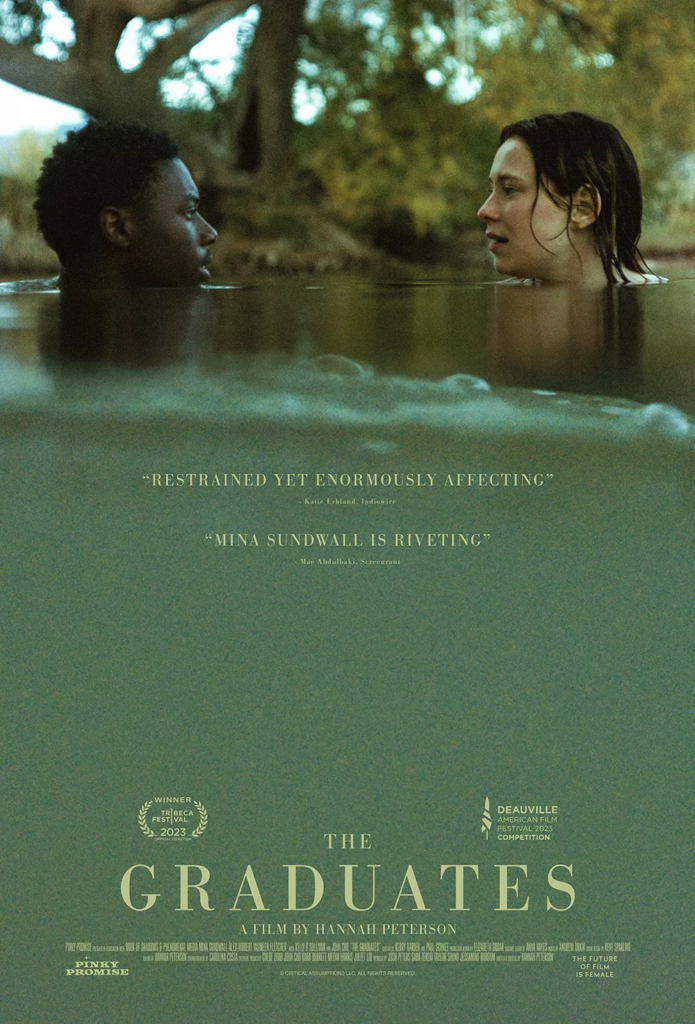The Graduates Christian Review

Reflections on The Graduates: A Film About Grief, Memory, and Quiet Moments
In a world that often rushes us past loss and asks us to mask our sorrow, The Graduates does something remarkable: it slows everything down, encourages a deeper look, and gives us room to sit with what hurts. Directed by Hannah Peterson, this isn’t your usual coming-of-age drama. There’s no sugarcoating here, no forced inspiration. Instead, The Graduates offers a quiet, reflective exploration of grief and memory, touching on themes that feel both timeless and painfully relevant. It’s one of those films that might catch you off-guard, leaving a lasting imprint long after the credits roll.
For those looking through a Christian lens, The Graduates touches on something profound. The Bible speaks often of mourning, of the depths of human sorrow, and of the promise of comfort that is never out of reach. Here, Peterson doesn’t preach or offer simple answers; instead, she brings to life a story that many of us will recognize as true to our own journeys—one where healing is not a quick fix, but a slow, faithful unfolding.
A Portrait of Grief: Where Words Fall Short, Expressions Speak
In The Graduates, the characters live in a world that feels subdued, almost suspended in time. Jenna Sundwall, as the film’s lead, gives a performance marked by restraint and nuance. There’s no grand monologue or emotional climax that wraps up her grief with a bow. Instead, she conveys her character’s inner world through silence, through a look or a small gesture that speaks volumes. For Christians, who may resonate with the idea that true emotions sometimes exist in the silence between words, Sundwall’s portrayal of grief may feel especially poignant.
Her character is wrestling with loss—not in a way that seeks easy answers, but in a way that accepts that sometimes, there aren’t any. In those moments, the film echoes Ecclesiastes’ wisdom: there is a season for everything. For Jenna’s character, this is a season of mourning, and The Graduates doesn’t rush her through it.
The supporting cast, particularly Dizzia and Cho, bring warmth and stability, embodying the idea that grief is not just an individual burden but something often shared in quiet community. Their roles remind us that, as Christians, we are called to carry one another’s burdens. They don’t attempt to “fix” the protagonist’s pain but instead embody a compassion that feels real, grounded, and deeply relational.
A Style Rooted in Stillness and Simplicity
What strikes you about The Graduates isn’t just the performances, but the style with which the story is told. Peterson’s direction leans heavily on quiet moments and lingering shots. There’s a sense that every frame is inviting us to pause, to take a breath, and to sit with the weight of what’s happening on screen. This pacing won’t work for everyone—some may find it too slow, too minimalistic—but for others, especially those accustomed to reflection and meditation, it might feel like a cinematic exhale.
There’s a concept in Christian tradition called “memento mori,” or “remember your mortality.” While The Graduates doesn’t explicitly reference this, it’s hard not to see it woven throughout. Peterson’s direction is contemplative, allowing viewers to feel the frailty of life and the importance of the memories we carry. For many Christian viewers, this emphasis on stillness might serve as a gentle nudge to reflect on their own lives, to consider what they cherish, and to think about what remains after loss.
It’s as if Peterson is gently guiding us through the stages of mourning—not with a road map or instructions, but with a silent understanding that grief isn’t a problem to be solved. Sometimes, it’s just something we live with, day by day.
Authentic, Imperfect, and Beautifully Human
To be fair, The Graduates isn’t a flawless film. The script leans into a single, steady tone, which some may find one-note or overly restrained. Certain moments linger perhaps a bit too long, and occasionally the movie risks tipping into sentimentality. But maybe that’s also what makes it feel real. Grief doesn’t follow a predictable arc. It’s messy, repetitive, and stubborn. Peterson captures this truth even when it feels uncomfortable, even when it challenges our expectations of what a film should be.
Christian viewers might find this “imperfection” particularly resonant. Our lives, too, are rarely perfect stories with clean endings. Often, they’re marked by pain and uncertainty, by seasons where faith feels fragile or even absent. Yet, in those moments, God’s grace remains constant. The Graduates captures that tension, that sense of being both broken and held.
The empathy in Peterson’s storytelling is palpable. She never shies away from the emotional weight of the subject matter, yet she avoids manipulating the audience into forced tears or over-the-top dramatics. There’s a respect for the viewer’s emotional intelligence here, a trust that we’ll engage with the story in our own way, just as we might approach our own struggles with grief and healing.
The Christian Message: Hope in the Darkness
While not explicitly a Christian film, The Graduates is rich with themes that will resonate with believers. At its heart, this is a story about loss, but it’s also a story about hope—a hope that is subtle, understated, and never simplistic. The characters learn to live with their pain, to carry it as they move forward, rather than leaving it behind. This mirrors a deeply Christian understanding of hope, one that acknowledges life’s suffering without being defined by it.
There’s a line in Romans 5:3-5 that speaks to this kind of hope: “We rejoice in our sufferings, knowing that suffering produces endurance, and endurance produces character, and character produces hope.” The Graduates doesn’t give us the quick, feel-good hope that resolves everything in a neat package. It’s the kind of hope that lives in the quiet moments, in the strength to keep going, in the warmth of companionship, and in the memories of those we’ve loved.
Peterson reminds us that grief isn’t a place we need to escape from, but a part of life we need to live through. For Christians, this is a familiar truth—one that speaks to the promise of God’s presence in our pain, a comfort that is both quiet and profound.
Final Thoughts
The Graduates is a film that asks for patience and openness. It’s not an easy watch, nor is it meant to be. It’s a film that meets you where you are, especially if you’ve walked through loss or are still learning to live with it. For Christian viewers, it offers a perspective on grief and healing that is honest, compassionate, and ultimately hopeful. It doesn’t shy away from the pain of loss, but it also shows us the beauty of carrying memories, of finding strength in community, and of learning to see hope even in the shadows.
Final Rating: 8/10





